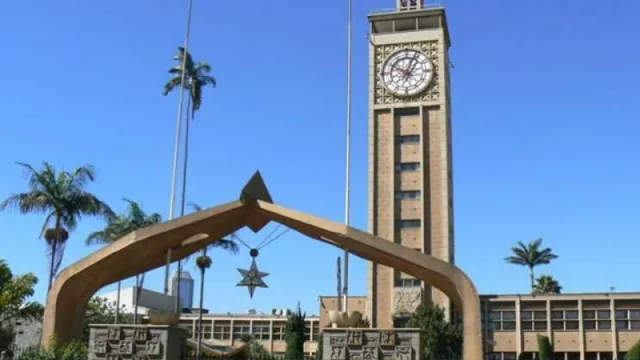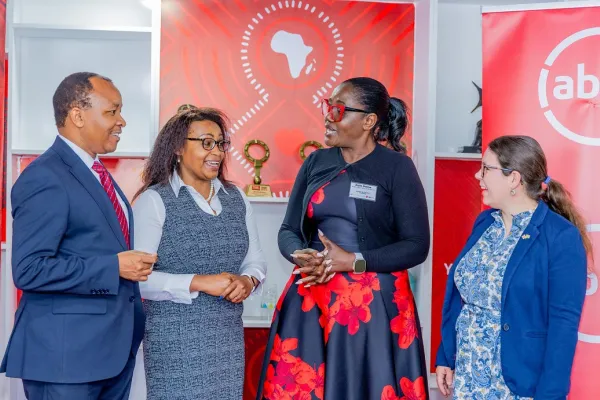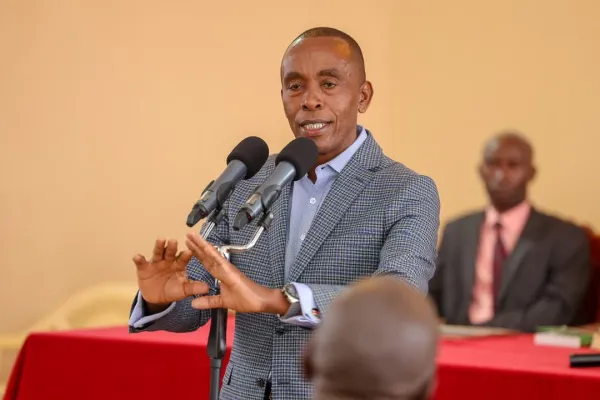New Bill proposes to support young mothers' return to school

New Bill proposes to support young mothers' return to school
A new proposal aimed at assisting adolescent mothers and young parents in pursuing their education while caring for their children has been presented in the National Assembly.
The Care and Protection of Child Parents Bill, 2023, co-sponsored by Nominated Senator Miraj Abdulrahman and Kericho County Woman Representative Beatrice Kemei, aims to establish a comprehensive framework for the care and protection of child parents.
It intends to ensure that expectant girls or child parents have access to basic education while also addressing the needs of their children.
Under the proposed bill, both the National and the 47 County governments would be required to develop programs aimed at identifying and re-enrolling students who have dropped out of school due to pregnancy or childcare responsibilities.
Additionally, if approved, the Bill would mandate counties to set up childcare centers near schools to support student mothers and caregivers, particularly those with children under three years old.
The legislators noted that despite the Ministry of Education's development of the National Guidelines for School Re-Entry in Early Learning and Basic Education in 2020, the issue persists.
Supportive structures
Therefore, there is a pressing need to foster collaboration between the National Government and county governments to safeguard these children and establish supportive structures enabling them to sustain their education.
"In some instances, the school where the child was attending refuses to readmit the child, thus denying them the opportunity to complete their basic education. Stigma from society and other learners also plays a role. In other instances, the expectant children come from needy families and have to drop out of school to take care of their children once they give birth," they said in a statement.
According to a report released in 2023 by the Foundational Literacy and Numeracy Assessment (FLANA), there has been a rise in the percentage of school-aged children, aged six to 15 years, who are not enrolled in school. The figure increased from 7.5 percent in 2021 to 8.5 percent in 2023.
The report, unveiled on March 5th, disclosed that 0.5 percent of children residing in rural areas enter into early marriages. This percentage sharply rises to 2.4 percent in urban regions.
Overall, 1.2 percent of children discontinue their education due to early marriages. Nationally, a total of 2.1 percent of children drop out of school because of pregnancy, with a prevalence rate of 1.2 percent in rural areas and 1.5 percent in urban areas.
At the same time, the government has withdrawn a contentious amendment proposal embedded within the Statute Law (Miscellaneous Amendments) (No. 2) Bill, 2023, that would have otherwise had an impact on Kenya’s higher education sector.
This unexpected outcome raised alarms that the proposed amendment would further inhibit government-sponsored student enrollment in public universities and colleges.
The proposed revision aimed to modify section 56(1)(a) of the Universities Act of 2012, aiming to ensure that government-sponsored students are allocated slots in public universities and colleges, departing from the current practice where such students can end up in private institutions.
This current setup has resulted in restricted access to university education for students from financially disadvantaged backgrounds, who predominantly benefit from government sponsorship.
The proposed change also aimed to diversify opportunities for students from various socio-economic backgrounds and alleviate the financial strains faced by public universities. However, upon closer scrutiny, concerns surfaced regarding unintended consequences of the proposed amendment.
It became evident that the amendment would still mandate the Placement Board to assign government-sponsored students to private universities and colleges. Furthermore, the amendment would also entail privately sponsored students gaining access to public universities and colleges, institutions primarily intended for government-sponsored students.
Moreover, concerns arose regarding the potential negative impact of the proposed amendment on the government's overarching goals of ensuring fair access to university education, especially for disadvantaged students in need.
Read also: NCBA’s sustainability plan bolstered by Sh6Bn for Women
Worsen disparities
Critics contended that implementing such a sweeping policy could worsen existing disparities and impede endeavors to promote inclusivity across higher education institutions.
In light of these apprehensions, the Majority Leader of the National Assembly, Kimani Ichungw’ah, in collaboration with the Ministry of Education, opted to retract the proposed amendment to facilitate further consultations and deliberations.
“The move reflects a commitment to undertake a more comprehensive review of the Universities Act, of 2012, to ensure that any legislative changes align with the government’s extensive blueprints and goals in the education sector,” Ichungw’ah said.
Speaker Moses Wetangula went along with Ichungw’ah’s request to withdraw the proposed amendments to the University Act of 2012.
“I wish to notify the House that I have received a request from the majority leader seeking my consent for the withdrawal of the proposed amendment as contained in the Bill,” Speaker Wetangula said. “I have acceded to the request by the leader of the majority to withdraw the provision as contained in the Bill,” the speaker explained.



